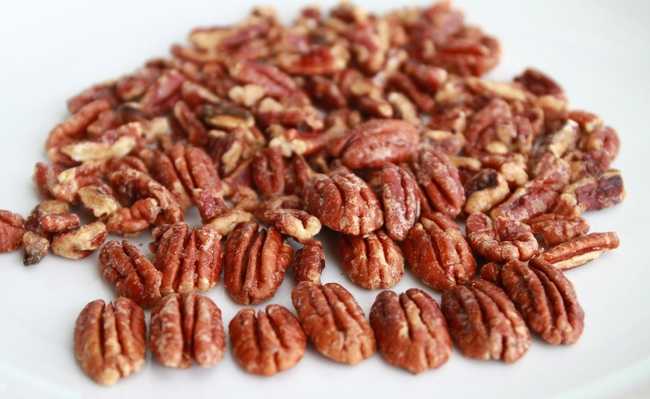Health Benefits of Pecan Nuts
The consumption of pecan nut helps in heart health and prevents various types of diseases

Lisa Redfern image on Pixabay
The pecan nut is a fruit that grows on lush, green trees found primarily in the Southeast, South and Central regions of the United States and Mexico. It serves to treat and prevent various health conditions, in addition to being a source of nutrients and healthy fats essential to the maintenance of important metabolic processes for the body. Thanks to its buttery flavor, pecan nut is a common ingredient in appetizers, desserts and main courses.
Pecan properties
Due to their numerous nutritional, antioxidant and anti-inflammatory properties, pecan nuts are an indispensable item in the diet of those who value the quality of health. The nutritional value of the pecan nut is impressive. It has eleven essential vitamins for the human body and, despite being rich in fat and high in calories, the pecan nut helps in weight maintenance, as all its content is used by the body for metabolic processes and energy generation.
Pecan Nut Nutrients
Pecan nut is rich in several important nutrients. In particular, they are a good source of fiber, along with copper, thiamine and zinc. 28 grams of pecan nut contains the following nutrients:
- Calories: 196;
- Protein: 2.5 grams;
- Fat: 20.5 grams;
- Carbohydrates: 4 grams;
- Fiber: 2.7 grams;
- Copper: 38% of daily value (DV);
- Vitamin (vitamin B1): 16% of the RV;
- Zinc: 12% of the DV;
- Magnesium: 8% of RV;
- Phosphorus: 6% of RV;
- Iron: 4% of the RV.
Several minerals present in pecan nut are essential for the proper functioning of the body. Copper, for example, is directly related to the production of red blood cells and the function of nerve cells. Meanwhile, thiamine is critical for converting carbohydrates into energy to fuel the body. Zinc, in turn, is important for the immune system as well as cell growth, brain function and wound healing.
Benefits of Pecan Nuts
The consumption of pecan nut can have several health benefits. Meet some of them:
Helps in heart health
Pecan nut is rich in organic compounds from vegetable and animal oils and fats called fatty acids. These are a type of fat that can benefit your heart health. A study of people with coronary artery disease showed that including pecan nut in the diet can improve the ratio of total cholesterol to good cholesterol in the blood.
In addition, other research done with people who have normal cholesterol levels revealed that those who eat pecan nuts daily may have significantly lower levels of bad cholesterol in their blood compared to those who don't eat nuts.
scavenges free radicals
Studies carried out by researchers at Loma Linda University, California (USA), indicate that the intake of pecan nuts increases the amount of antioxidants in the bloodstream for up to 24 hours after consumption, causing them to eliminate free radicals during this period. In addition, people who adopt this nut in their diet have a lower risk of developing diseases resulting from oxidative stress and better immunity.
Improves bone health
Several nutrients present in pecan nut are used to treat the symptoms of osteoporosis. Studies have shown that these nutrients have important benefits in treating bone loss. This means that, in addition to reducing loss, the pecan nut also increases bone density.
Helps skin and hair health
By containing antioxidants, vitamins A, E and ellagic acid, pecan nuts prevent premature aging and reduce the appearance of wrinkles. Furthermore, the zinc content in pecan nuts is responsible for providing a healthy appearance to the skin.
As for hair, the pecan nut is widely used in methods to treat male pattern baldness. The amino acid L-arginine present in the nut is able to increase blood circulation throughout the body, also strengthening the hair roots. In addition, the iron in it prevents the development of anemia, which can cause hair loss.
Stabilizes blood sugar
Research also suggests that walnuts may promote better blood sugar control, which may be linked to their fiber content. Despite having more insoluble fiber in its composition, walnuts also contain some soluble fiber, which slows down the absorption of sugar in the blood.
One study confirmed the benefits of oilseeds for cardiovascular health. The results revealed that the addition of nuts improved the participants' insulin sensitivity. Furthermore, there was a positive impact on factors that can lead to cardiometabolic disease, that is, changes in insulin and in the function of the beta cells of the pancreas, which store and release the hormone.
Promotes brain function
Pecan nut is rich in nutrients that can benefit brain function. Among them are the mono and polyunsaturated fatty acids mentioned above. Monounsaturated fatty acids, in particular, have been linked to decreased mental decline and reduced inflammation.
A 40-year study was able to link increased nut consumption with improved long-term cognition. Likewise, other research revealed that people who eat nuts daily may be 40% less likely to have poor cognition.
Pecan nut contraindications
Although pecan nut has been associated with several potential health benefits, there are some contraindications to consider. First, those who are allergic to nuts should avoid them.
Furthermore, it should be noted that it is also relatively high in calories. Thus, eating several servings of pecan nut can increase your daily caloric intake, contributing to weight gain if you don't make other adjustments to your diet or physical activity level. For this reason, moderate intake of pecan nut is important for the body's balance.










